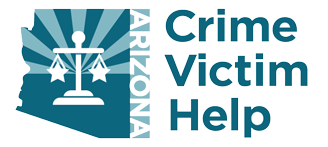Child Abuse
Whether you are a child experiencing abuse, suspect a child you know is being abused, or are the parent of a child that is being abused, there are steps you can take to report and stop the abuse.
What is child abuse?
Child abuse is when a parent, guardian, or caregiver causes (or fails to stop) injury, death, or risk of injury or death to a child. Arizona law A.R.S. § 8-201 defines child abuse as the harming or allowing of physical or emotional harm to a child.
Child abuse can take a variety of forms, including physical, sexual, or verbal/emotional abuse, neglect, and abandonment.
Child abuse can take a variety of forms, including physical, sexual, or verbal/emotional abuse, neglect, and abandonment.

Physical abuse
Using physical force that causes non-accidental injuries, such as bruises, blisters, broken bones, cuts, burns, and other bodily harm.
Using physical force that causes non-accidental injuries, such as bruises, blisters, broken bones, cuts, burns, and other bodily harm.
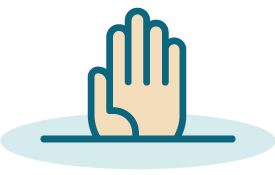
Sexual Abuse
Pressuring or forcing a child to take part in sexual acts or using a child for sexual purposes or gratification.
Pressuring or forcing a child to take part in sexual acts or using a child for sexual purposes or gratification.
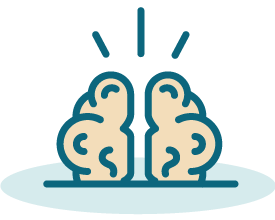
Emotional abuse
Harming a child’s social, mental, and emotional well-being or self-worth through actions such as name calling, shaming, embarrassing a child in a public setting, withholding love, rejection, or threatening abuse.
Harming a child’s social, mental, and emotional well-being or self-worth through actions such as name calling, shaming, embarrassing a child in a public setting, withholding love, rejection, or threatening abuse.

Neglect
Failing to provide proper care or supervision to meet a child’s needs, such as leaving a child alone or locked up, or failing to provide a child with adequate food, clothing, education, or medical care.
Failing to provide proper care or supervision to meet a child’s needs, such as leaving a child alone or locked up, or failing to provide a child with adequate food, clothing, education, or medical care.

Exploitation
Using a child for material gain.
Using a child for material gain.

Abandonment
Failing to provide support or maintain regular contact with a child.
Failing to provide support or maintain regular contact with a child.
What are signs of child abuse?
There are many different signs of child abuse that can be seen in the child being abused and in the child’s parent/guardian/caregiver. These signs can range from physical to behavioral and are not always easy to spot. If you are a victim of child abuse or see these signs of child abuse, you can get help right away. Although the list below includes common signs of child abuse to look for, there may be other signs. To learn more visit, Childhelp.
Signs in a child
-
Visible and severe injuries, injuries at different stages of healing, or injuries on different surfaces of the body
-
Injuries that are unexplained or explained in a way that does not make sense
-
Fear, withdrawal, depression, anxiety
Signs in a parent/guardian/caregiver
-
Will not explain child’s injuries, or explains them in a way that does not make sense
-
Aggression towards child, or overly anxious about or critical of child’s behavior
-
History of violence and/or abuse
How can I support a child who has been abused?
If you notice signs of abuse in a child, you can report the suspected abuse to keep the child safe.
Depending on your position or relationship to the child, you may be required by law to report the suspected abuse. Scroll down for more information about how to report child abuse.
Depending on your position or relationship to the child, you may be required by law to report the suspected abuse. Scroll down for more information about how to report child abuse.

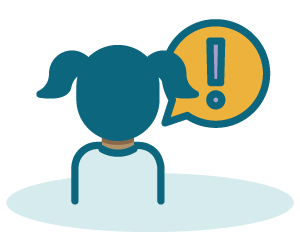
A child may choose to talk to you about (or ‘disclose’) the abuse they are experiencing. A child may do this indirectly or directly. For more information about how to recognize a child abuse disclosure and provide support to a child who has disclosed abuse visit, Childhelp.
How do I report child abuse?
The Arizona Department of Child Safety (DCS) is the statewide reporting agency for child abuse. You can make a report to the toll-free Arizona Child Abuse Hotline at 1-888-767-2445 (1-888-SOS-CHILD) or contact your local law enforcement office.
When reporting child abuse, you will be asked to provide the following information, if known:
-
name, age, and gender of child and other family members
-
address, phone numbers, and/or directions to child’s home
-
parents’ place of employment
-
description of suspected abuse or neglect
-
current condition of child
Who is legally required to report child abuse?
People who are legally required to report child abuse are called “mandated reporters.” A mandated reporter is required to tell law enforcement or DCS right away if they have a reason to believe a minor is or has been the victim of physical injury, abuse, a reportable offense, or neglect.

The following people are mandated reporters under Arizona law:
Any physician, physician’s assistant, optometrist, dentist, osteopath, chiropractor, podiatrist, behavioral health professional, nurse, psychologist, counselor or social worker who comes to believe while treating a patient that a child is being abused.
Any peace officer, member of the clergy, priest, or Christian Science practitioner.
The child’s parent, stepparent, or guardian.
Any school employee or domestic violence victim advocate who comes to believe through their work that a child is being abused.
Any other person who has responsibility for the care or treatment of the child.
Any peace officer, member of the clergy, priest, or Christian Science practitioner.
The child’s parent, stepparent, or guardian.
Any school employee or domestic violence victim advocate who comes to believe through their work that a child is being abused.
Any other person who has responsibility for the care or treatment of the child.
I was abused as a child, can I still report the abuse?
Yes. Reporting abuse that occurred when you were a child is an opportunity to hold an abuser legally accountable. Arizona law sets a maximum time period after a crime has occurred for starting legal proceedings against the person who committed the crime.
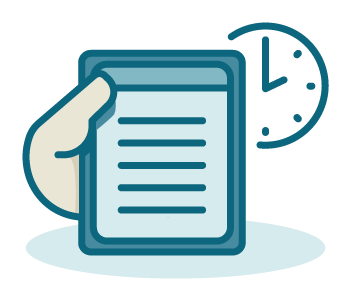
The laws that say what the maximum time period is are called “statutes of limitations.” Many of the different types of acts and omissions that can constitute child abuse are defined as crimes in Arizona law, and subject to a statute of limitations. While Arizona has eliminated its statutes of limitations for many felonies, some statutes of limitations remain. For more information about the criminal statutes of limitations in Arizona for crimes related to child abuse visit, RAINN.
Apart from criminal charges that may be brought by the government against an abuser as a result of reporting, the victim of abuse may also have the option to file a civil action (lawsuit) against the abuser to recover compensation for your losses.
For example, Arizona law (ARS §12-514) says that anyone who was sexually abused as a minor has until their 30th birthday to start a civil action against their abuser.
I was abused as a child, where can I find help?
There are helpful resources available to adult survivors of child abuse, including support networks, hotlines, counseling, and therapy resources.
For a list of organizations for adult survivors of abuse visit, Child Welfare Information Gateway.
For resources for adults who experienced sexual abuse as a child visit, StopitNow.

Child Abuse Resources and Help
Resources
Suicide Prevention
Counseling/Therapy Resources
Teen Lifeline or call 602-248-8336
Crisis Textline or Text HOME to 741741
Rape, Abuse, & Incest National Network
National Sexual Assault Hotline or call 800-656-HOPE (4673)
Substance Abuse and Mental Health Services Administration or call 1-800-662-HELP (4357)
Psychologist Locator, American Psychological Association
Crisis Textline or Text HOME to 741741
Rape, Abuse, & Incest National Network
National Sexual Assault Hotline or call 800-656-HOPE (4673)
Substance Abuse and Mental Health Services Administration or call 1-800-662-HELP (4357)
Psychologist Locator, American Psychological Association
